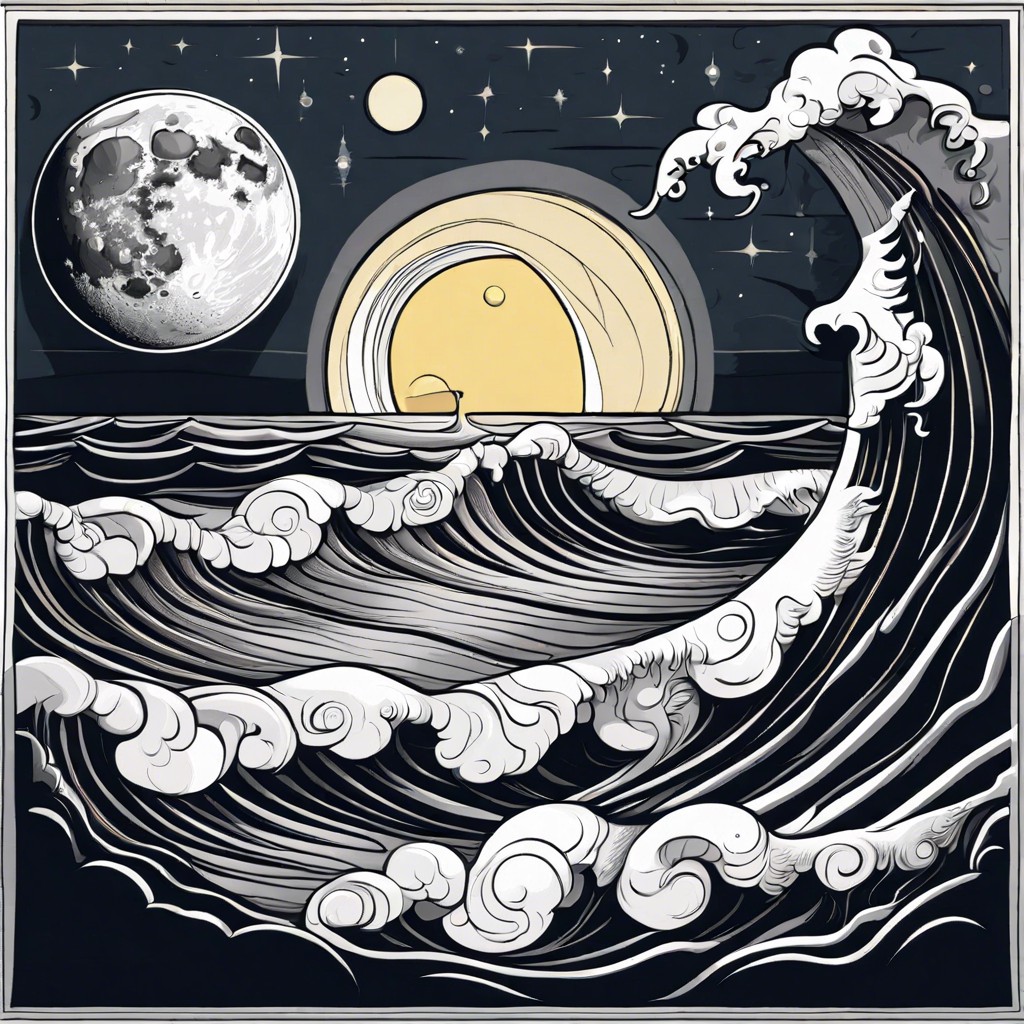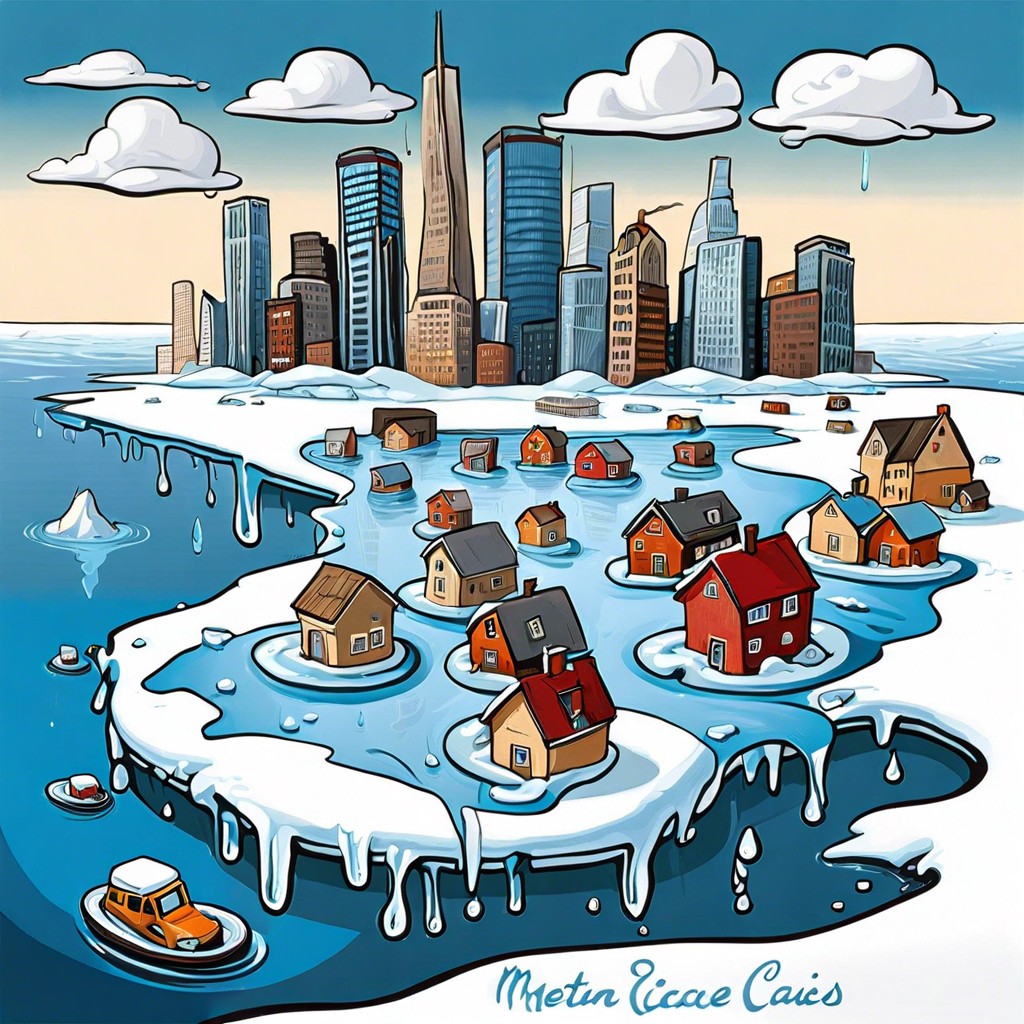Discover the surprising ways our world would change if the moon suddenly vanished.
Ever wondered what life would be like if the moon decided to exit Earth’s orbit for an interstellar holiday? No need for rocket science degrees or telescope lenses here. This tiny lunar vanishing act would unleash colossal changes on Earth itself. From wild tides playing tug-of-war with our coastlines to our planet’s axis doing a wobble dance, not to mention nocturnal creatures complaining about their late-night illumination or our ancient tales losing a celestial protagonist. Let’s journey through this hypothetical moon-less chaos together. Buckle up, it’s going to be a bizarre ride!
Key takeaways:
- Shrinking ocean tides impact marine life and surfing locations.
- Nighttime under a moonless sky: challenges for stargazing and nocturnal creatures.
- Earth’s tilt wobbles, rotation speeds up, climate chaos looms.
- Moon’s disappearance disrupts wildlife mating, ecosystems, and pollination.
- Cultural loss without the Moon: no more moonlit walks or lunar calendars.
Immediate Effects On Earth’s Tides

Picture this: beaches around the world look a little different with no moon in sight. Why? No moon means no lunar tides.
First off, ocean tides would shrink. The sun’s gravity would still create tides, but they would be significantly smaller. Say goodbye to those dramatic high and low tides.
Coastal ecosystems would face a shake-up. Marine life that depends on tidal cycles for feeding and breeding might have to adapt—or else.
Low-lying areas near the coast could face new flooding patterns. Regular tides currently help regulate water levels, and their absence could make high waters unpredictable.
Surfers might be the saddest of all. Wave conditions largely influenced by tidal forces would change, making surf spots less reliable.
Overall, the serene dance of ocean tides would lose its rhythm, replaced by a much tamer and less predictable pattern.
Changes in Nighttime Illumination
The night sky without the moon would be like a celestial blackout. Imagine trying to navigate under that ink-stained sky. The stars would have their moment to shine, literally, but stargazing might lose some of its allure without our silvery lunar lantern.
Streetlights and flashlights would become even more essential than they are now. No more dreamy moonlit walks on the beach, unless bioluminescent algae conveniently show up. Astronomy could get trickier too. The moon helps ground our observations; without it, astronomers might fumble a bit more in their celestial detective work.
Also, picture this: nocturnal animals would face the ultimate dark challenge. Some thrive under moonlight, and stripping away their nightlight could lead to disastrous confusion. Who knew the moon was such a crucial nightlight for our furry, feathery, and scaly friends?
Impact On Earth’s Axis and Rotation
Without the moon, Earth might start to wobble like a toddler on roller skates. Our lunar buddy stabilizes the Earth’s tilt, keeping seasons predictable. Lose it, and who knows? Summer in December, anyone?
Earth’s rotation could speed up, leading to shorter days. Kiss those extra hours of sleep goodbye. The tides of time wait for no moon!
The angle of our planet’s axis could change unpredictably, causing climate chaos. One year you’re growing palm trees in Alaska, the next, it’s snowing in the Sahara. Wild, right?
Lastly, the lack of lunar gravitational pull could mess with tectonic stability. Imagining an earthquake-prone world might seem straight out of a disaster movie, but it’s a legitimate concern.
Consequences for Wildlife and Ecosystems
When the moon ghosts us, nature freaks out. Sea creatures are the first to lose their cool. Many marine species time their mating and feeding cycles with the moon’s glow. No lunar nightlight? Chaos in the ocean’s dating scene.
Speaking of dating, nocturnal animals will trip over themselves. Bats and owls rely on the moon’s light to find their midnight snacks. Imagine a clumsy, hungry owl – yikes!
Turtles would fare no better. Baby sea turtles rely on the moonlight to find their way to the big blue. Without it, they might just end up in your backyard, lost and confused.
Land critters won’t be spared either. Predator-prey dynamics would shift, and ecosystems might end up like a poorly managed soap opera, with unexpected plot twists and cliffhangers.
Bees, which navigate using the sun and the moon, could become disoriented, affecting pollination. Expect less honey for your toast and more grumpy beekeepers.
In short, a missing moon means wild parties in the animal kingdom – the kind you don’t want to attend.
Human Cultural and Scientific Implications
Without the Moon, countless cultural traditions and scientific ventures would be lost, like a sock swallowed by the laundry monster.
For starters, say goodbye to all those moonlit sonnets and romantic midnight strolls. Artists, poets, and love-struck souls would have to find a new muse. Maybe starry skies? But they do not quite evoke the same timeless allure, do they?
The science community would mourn the loss profoundly. The Moon has been a stepping stone in understanding our cosmos. Ever heard of the Apollo missions? They are not just a cool space story; they have been key to numerous technological advancements. Without that big rock hanging around, who knows what otherworldly knowledge would have remained Earth-bound?
Lastly, our calendars would need some major rethinking. The Moon has dictated timekeeping practices in many cultures. Lunar calendars would transform into historical artifacts. While Google Calendar can handle that update, the cultural whiplash would be tremendous.
In short, humanity would need to find new ways to make a mark on the nightsky, both figuratively and technologically. Moon pies anyone?




